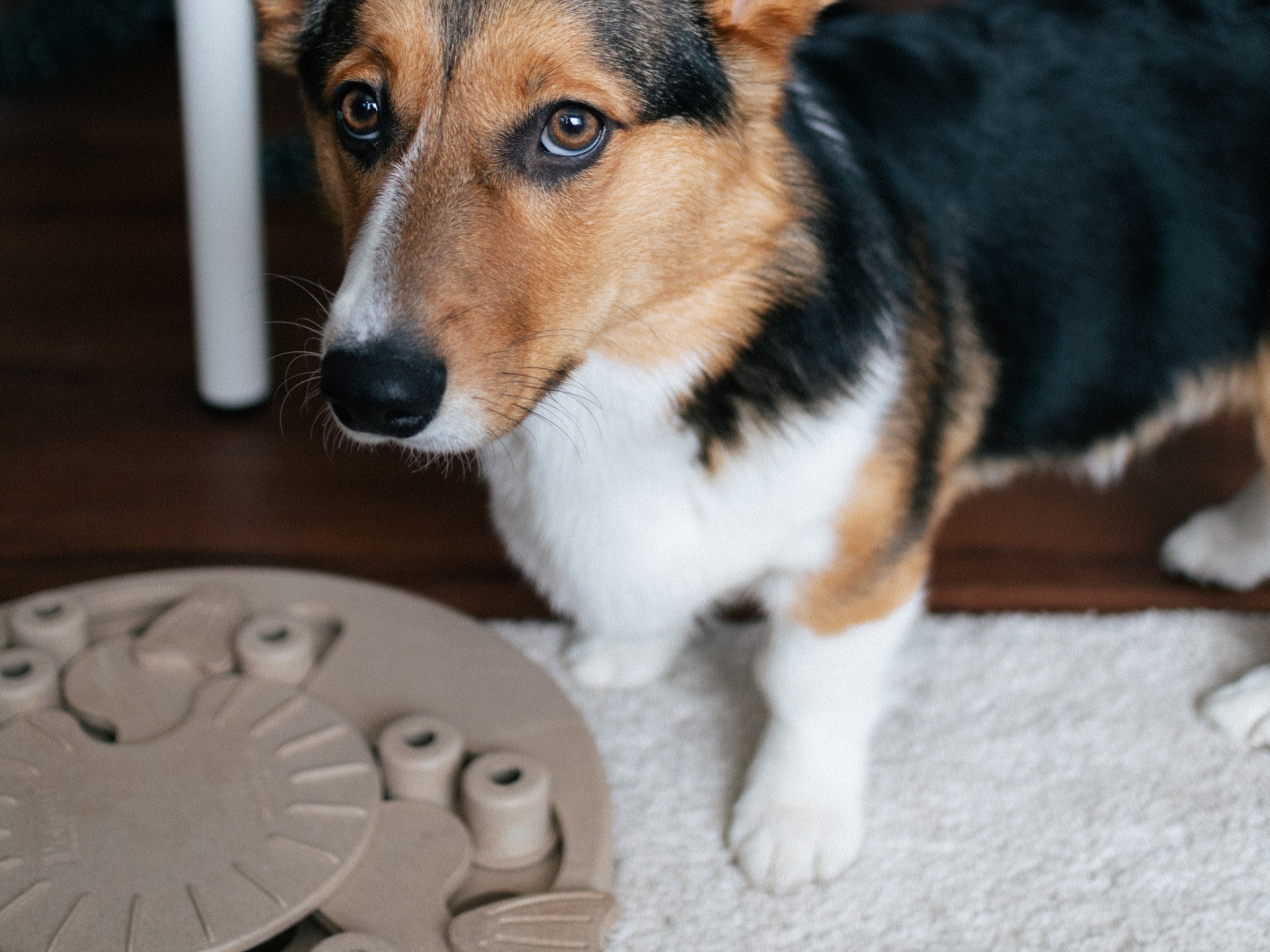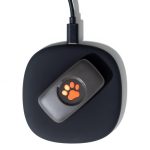Table of Contents

Disclaimer: I am not a vet, but an enthusiastic pet owner with a diverse knowledge of dogs, cats and other pets. Writing well researched articles recommending dog friendly products to in-depth guides. Please seek a certified vet for a professional opinion on your dog, these articles are written from my own research and opinions. Please read our Terms and Conditions for more! As an Amazon associate I earn from qualifying purchases.
Choosing the perfect family dog is a decision that holds the promise of lifelong companionship and joy. In the UK, where a variety of dog breeds find their homes in the hearts and houses of families, selecting the right breed goes beyond mere preference. It’s about finding a loyal friend who fits seamlessly into the family’s lifestyle, be it through their temperament, size, or energy levels.
Dogs, after all, are not just pets; they become integral members of our families, sharing in our joys, sorrows, and countless everyday moments. From the bustling cities to the serene countryside, the right family dog can make every corner of the UK feel even more like home.
This article aims to guide families in making this important choice, highlighting breeds that are known for their compatibility with family life.
Whether you’re looking for a dog that can keep up with active children, one that’s gentle with the youngest members of the family, or simply a furry friend to bring comfort and happiness, understanding what makes a breed suitable for family life is the first step on this exciting journey.
Criteria for Selecting a Family Dog
When embarking on the journey to find the perfect family dog, understanding the criteria that make a breed suitable for your household is crucial. The ideal family dog should align with your family’s lifestyle, living arrangements, and the ages of your children. Here are some key factors to consider:
- Temperament: This is perhaps the most crucial aspect. A good family dog should have a gentle, patient, and friendly temperament. Dogs that are known for their sociable nature tend to integrate more seamlessly into families with children.
- Size: Size does matter, especially in relation to your living space and the age of your children. Larger breeds might be too overwhelming for toddlers, while smaller breeds can be delicate and require gentle handling.
- Energy Level: Matching the dog’s energy level with your family’s lifestyle is essential for a harmonious household. Active families might find joy in a high-energy breed that thrives on exercise and outdoor activities, whereas a more laid-back dog might be better suited for less active families.
- Grooming Needs: Some breeds require regular grooming to keep their coat healthy and to reduce shedding, which could be a consideration for families with allergy sufferers. Understanding the grooming needs of a breed is essential for maintaining their health and your home’s cleanliness.
- Health Issues: Being aware of the common health issues associated with certain breeds can help you prepare for or even prevent future problems. Opting for breeds with fewer health concerns might also influence your decision.
Considering these criteria will not only help you find a dog that fits your family but also ensure that the dog’s needs are met. It’s a reciprocal relationship; the well-being of your future pet is as important as the happiness and harmony they bring to your household.

Credit Unsplash.com User @DavidButler1
Top Breeds for Families
Labrador Retriever
The Labrador Retriever, Britain’s most popular dog, is a firm favourite amongst families for many good reasons. Renowned for their gentle nature, intelligence, and adaptability, Labs are equally at home playing fetch in the garden as they are cuddling on the sofa. They are patient with children and protective of their families, making them an ideal choice for a loving and active household companion. Labs do require regular exercise to manage their energy levels and maintain their health, and their easy-to-care-for coat only adds to their appeal for busy families.
Cocker Spaniel
Cocker Spaniels, with their joyful and affectionate demeanor, are another excellent choice for families. These medium-sized dogs fit well into many living situations and are known for their adaptability. Their loyalty and eagerness to please make training a joy, and their gentle nature makes them a good match for families with children. Cocker Spaniels do require regular grooming to keep their beautiful coats in top condition, but the effort is well rewarded by their loving companionship.
Border Collie
For families that lead a more active lifestyle, the Border Collie could be the perfect match. Known as one of the most intelligent dog breeds, they excel in agility and are always eager to learn new tricks or participate in outdoor activities. Border Collies do best with lots of mental and physical stimulation, making them a fantastic choice for families who enjoy spending time outdoors and are willing to integrate their dog into many aspects of their daily lives. However, their high energy and intelligence mean they need plenty of engagement to prevent boredom.
Beagle
Beagles are known for their happy-go-lucky nature and are a wonderful addition to any family. Compact, friendly, and great with kids, they embody the spirit of adventure and are always ready for a game or an exploration session in the park. Beagles are fairly low-maintenance in terms of grooming but do need regular exercise to keep them fit and to help manage their innate curiosity. Their friendly disposition makes them great companions for children, teaching them the values of friendship and responsibility.
Considerations for Families with Small Children
Bringing a dog into a family with small children requires thoughtful consideration to ensure the safety and well-being of both the children and the pet. Here are some key considerations to keep in mind:
- Supervision is Key: Always supervise interactions between your new dog and young children. Even the gentlest dog can become overwhelmed by the unpredictable behavior of a small child, leading to potential accidents. Teaching your children how to interact safely with dogs is equally important.
- Teach Gentle Interaction: Children should be taught from the outset how to gently touch and play with the dog, understanding that dogs have boundaries just like people do. It’s essential to instill a sense of respect for the animal, emphasizing that they are not toys.
- Choose the Right Breed: While this article has highlighted breeds known for their good nature around children, individual temperament can vary. Consider choosing a breed known for its patience and gentle demeanor. Additionally, consider the size and energy level of the dog in relation to your living space and lifestyle.
- Introduce Other Pets Carefully: If you have other pets, carefully manage the introduction to your new dog. This helps ensure that all animals can coexist peacefully and safely.
- Childproof Your Home: Just as you would childproof your home for a toddler, consider dog-proofing your home to protect both your new pet and your children. Secure potentially dangerous items and create a safe space for your dog to retreat to if they feel overwhelmed.
By taking these considerations into account, you can create a harmonious and safe environment for your children and your new family dog, fostering a bond that will enrich your lives for years to come.
The decision between adopting a dog from a shelter and buying one from a breeder is significant, with each option offering its own set of benefits and considerations.
Adopting vs. Buying
Adopting from a Shelter
- Saving a Life: One of the most compelling reasons to adopt is the opportunity to save a dog’s life. Many shelters are overpopulated, and by adopting, you’re giving a dog a second chance at a loving home.
- Cost-Effective: Adoption fees are generally lower than the cost of purchasing a dog from a breeder. Additionally, many shelter dogs are already spayed or neutered and vaccinated, which can save on initial veterinary costs.
- Supporting a Worthy Cause: Your adoption fee helps support the shelter and its mission to care for and rehome unwanted animals.
- Wide Selection of Breeds: Shelters have dogs of all breeds and ages, meaning you’re likely to find the perfect match for your family.
Buying from a Breeder
- Predictability: When you buy from a reputable breeder, you have a better idea of what to expect in terms of the dog’s temperament, size, and health. Breeders can provide genetic testing and health clearances for the parents, offering peace of mind regarding the dog’s medical background.
- Breed Specificity: If you have your heart set on a specific breed, a reputable breeder can provide a purebred puppy that meets breed standards.
- Support and Guidance: A good breeder will be available to offer advice and support throughout the dog’s life. They can be a valuable resource for training tips, diet recommendations, and health care.
Regardless of whether you choose to adopt or buy, the most important factor is committing to provide a loving, forever home for your new family member. Researching and considering your options carefully will help ensure that your new dog is a good fit for your family and lifestyle.
Conclusion
Choosing the perfect family dog is a journey filled with excitement and anticipation. Whether you decide on a playful Labrador, a gentle Cocker Spaniel, an intelligent Border Collie, or an adventurous Beagle, the most important factors are love, care, and compatibility with your family’s lifestyle.
Remember, adopting a dog is not just about bringing a pet into your home; it’s about welcoming a new member into your family.
With the right preparation and consideration, your new dog will bring endless joy, companionship, and cherished memories to your family for years to come. Whether you choose to adopt or buy, the love and companionship of a family dog are unparalleled. Here’s to finding the perfect furry friend for your family!
FAQ
Q: How do I know which dog breed is right for my family?
Consider your family’s lifestyle, living space, and the ages of your children. Research breeds that match your activity level and space constraints, and think about the temperament that would fit well with your family dynamics. Meeting dogs in person can also give you a good sense of compatibility.
Q: Are there specific breeds that are better for families with allergies?
Yes, some breeds are known to be more suitable for individuals with allergies. These include breeds with minimal shedding, such as Poodles, Bichon Frises, and certain terrier breeds. However, individual responses to a dog’s dander can vary, so spending time with a dog before bringing them home is advisable.
Q: Are English Bulldogs good with children?
Yes, English Bulldogs are known for their gentle and patient nature, making them great companions for children and families. However, it’s important to supervise interactions between dogs and children to ensure safety and teach kids how to respect dog’s and their limits.
Q: Can adopting a dog be beneficial for children?
Yes, adopting a dog can teach children responsibility, empathy, and compassion. Caring for a pet helps children learn about the needs of others and the importance of routine and consistency in caregiving.












2 thoughts on “Best Dog Breeds For UK Families”
Comments are closed.